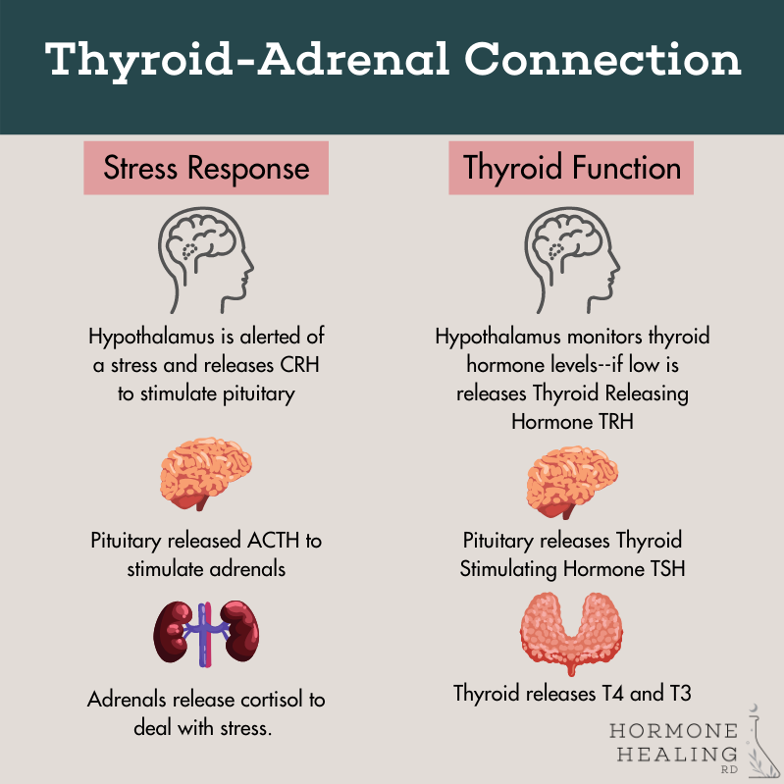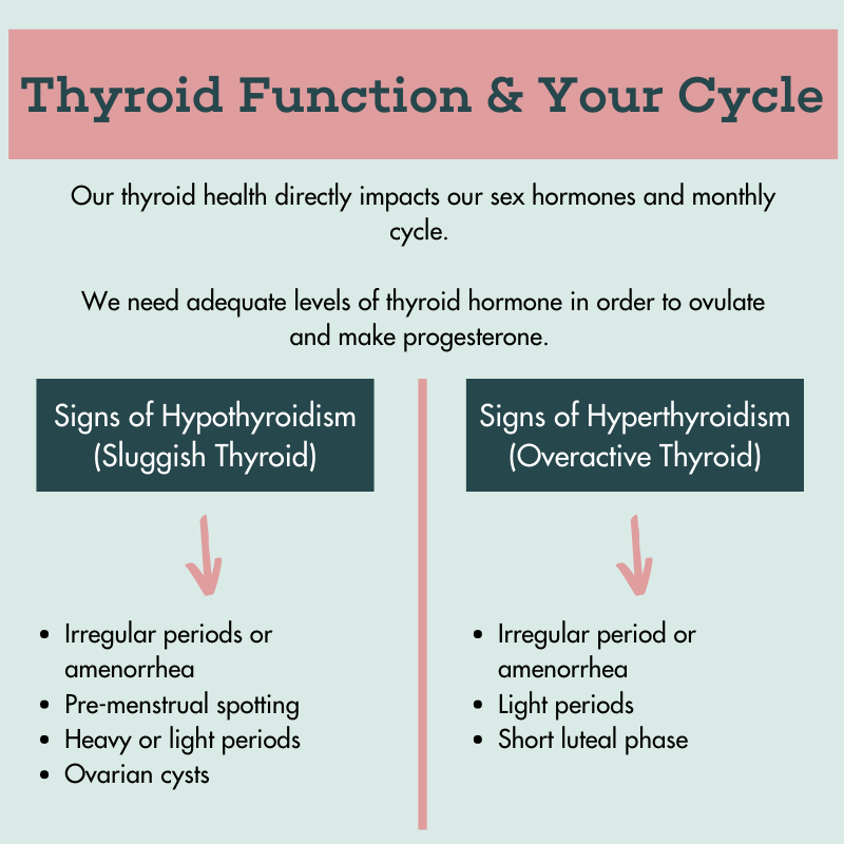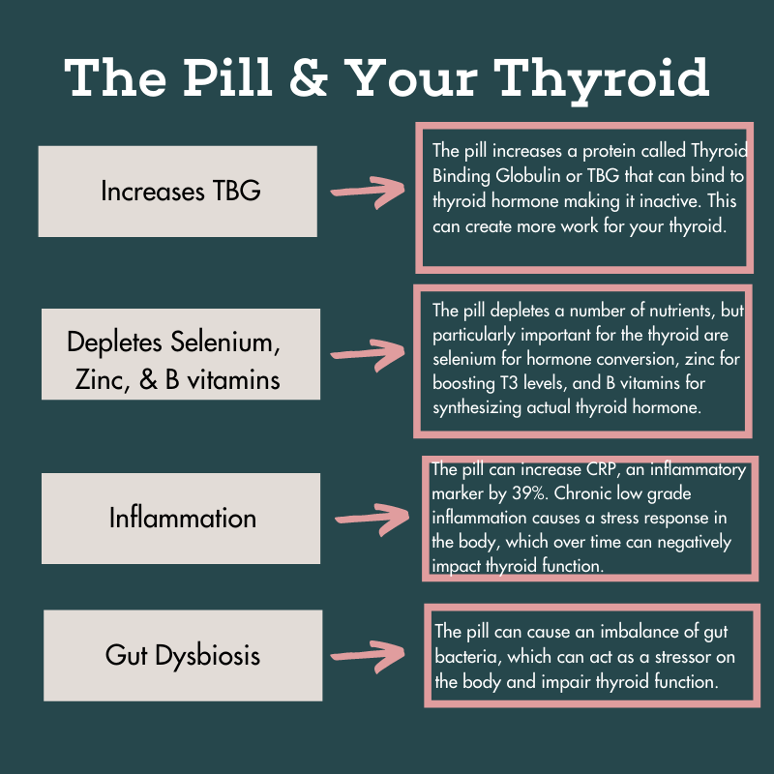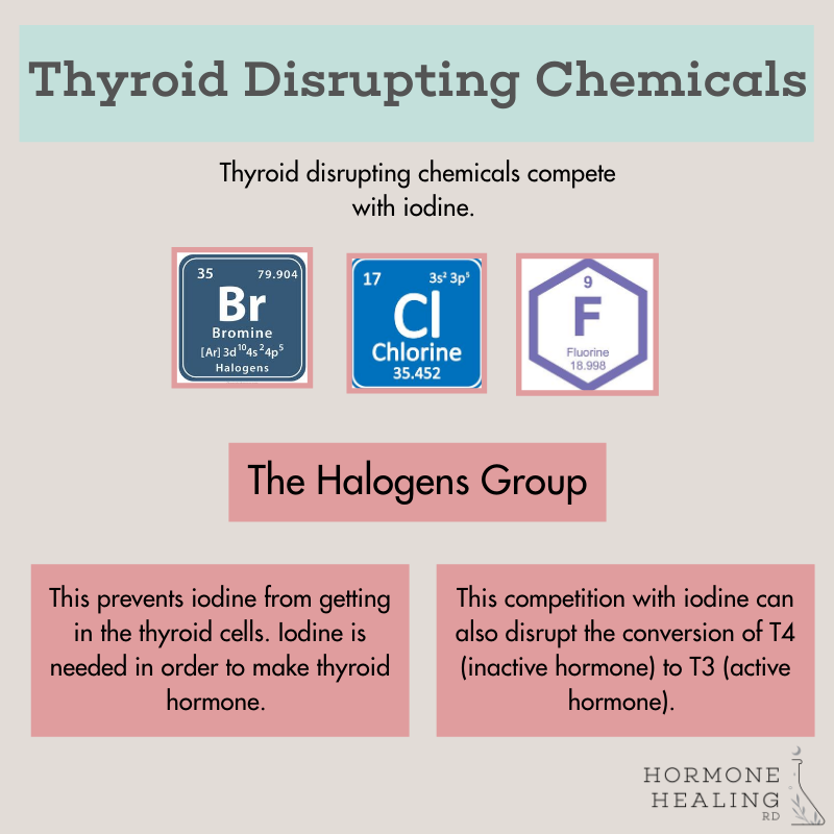In Part-1 of this thyroid health series, we discussed the basics of thyroid health. We covered what the thyroid is, how it works, and why you should care. In part-2, I will provide insight into how stress, your menstrual cycle, and birth control pills impact your thyroid health.
How does stress impact thyroid function?
If you look at the stress response and how the thyroid works, you can see they are in the same loop! The adrenals and thyroid are both controlled by the hypothalamus and the pituitary gland, in the brain. So, it makes sense that the adrenals have a big impact on thyroid function. The main way they impact the thyroid is through cortisol, our stress hormone.
If we have too much cortisol, it can disrupt the loop and inhibit thyroid function. Excess cortisol lowers thyroid-stimulating hormone production (TSH) and can even inhibit the conversion of the inactive form of thyroid hormone (T4) to the active form (T3) (see Part-1 for more on T3 conversion). This is why chronic stress can lead to an underachieving thyroid and why it can exacerbate conditions like hypothyroidism and Hashimoto’s. When your body is under chronic stress it responds by dialing down thyroid function. If you are dealing with thyroid issues or suspect them, first look for possible stressor(s).

Contributors to Chronic Stress:
…to name a few!
Thyroid Health & Menstrual Cycles:
Are you dealing with irregular cycles, amenorrhea, short luteal phase, heavy or really light periods? If you answered yes, it’s worth looking into your thyroid function. Low thyroid function is what I deal with most commonly in the clients I work with.

How does thyroid function impact your hormones/cycle?
You will notice that the symptoms of under or overactive thyroid can be similar. That’s why it’s always best to test and not guess. You will need a full panel: TSH, Free T4, Free T3, and both antibodies.

How does the pill impact the thyroid?
I’ve done lots of Instagram posts on the pill and so, I couldn’t leave it out of the thyroid series because it can have a huge impact on thyroid health. Listed below are ways in which the pill affects your thyroid:
It is important to be aware of these impacts if you have a history of thyroid issues or suspect that you might. There are non-hormonal options that you can choose from. Check out my Instagram for more information.
What chemicals disrupt the thyroid?
Certain chemicals, in specific, those chemicals from the halogen group, compete with iodine, which is also a halogen. Why? They have similar chemical structures and this allows them to interfere with thyroid function since we NEED iodine (see Part-1).

The Halogen Group:
What are some changes to consider if you are struggling with thyroid health?
Remember, the amount of exposure you have to these chemicals matters. Don’t stress about swimming in a pool every once in a while if you have a shower filter. If you’re minimizing exposure in most areas, you’re supporting thyroid health. Reducing your stressors and evaluating your menstrual cycles are essential to balancing thyroid hormones. Speak with your doctor about alternative non-hormonal pill options. If you missed Part-1 of this series, you can check it out here. Also, be sure to come back for Part-3; we’ll be discussing the impact of gut health, treatment plans, and nutrition-related care.
Photo by Annika Gordon on Unsplash
